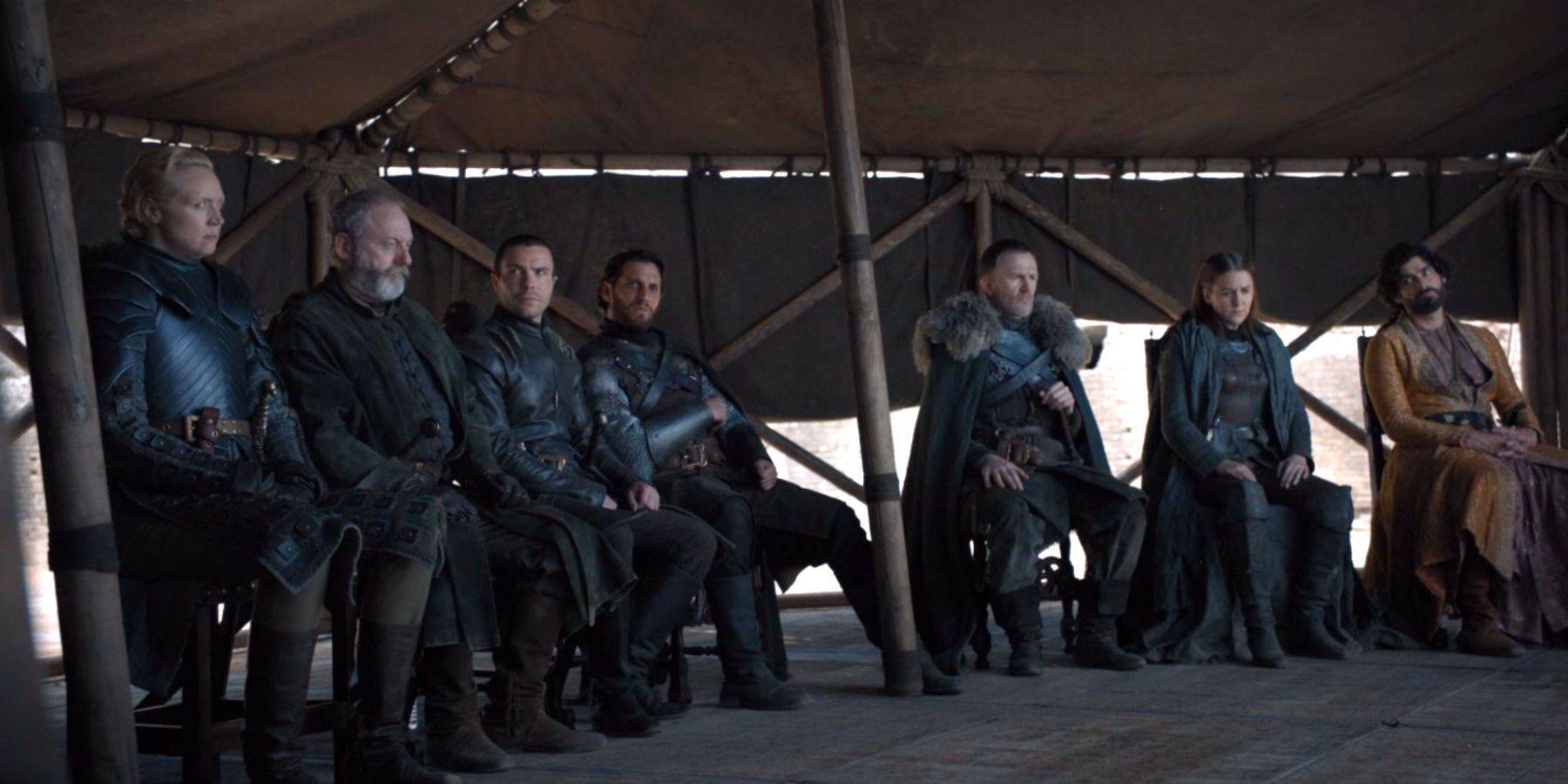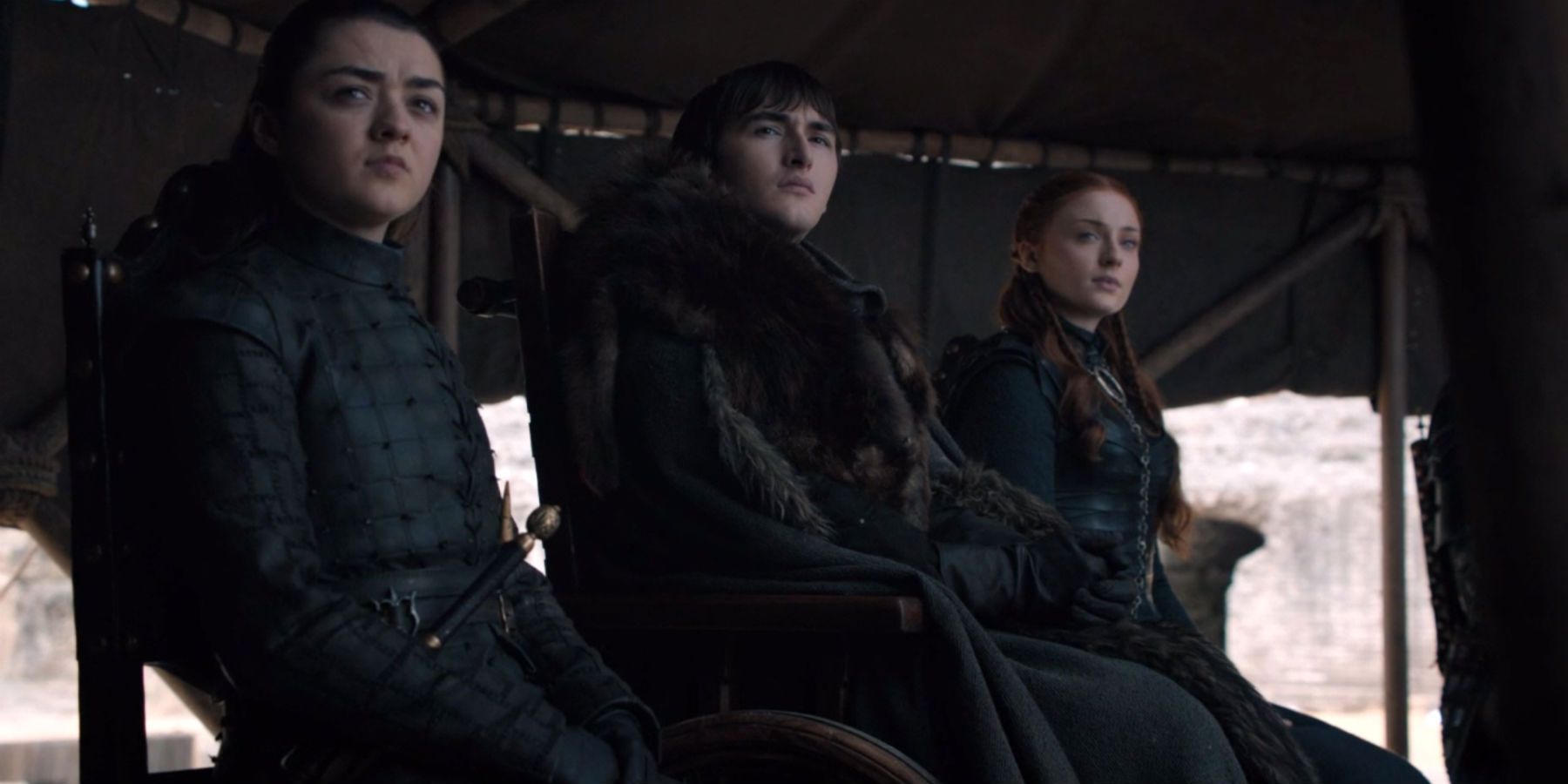Game of Thrones' finale saw the election of a new King, which involved a meeting of various characters new and old. Bran Stark is King of Westeros as the show ended, a position he got not through blood or conquest like his predecessors but via election.
This is the new royal set up for Game of Thrones. Starting with Bran, who is unable to have children and thus will not leave behind an heir, every new ruler of the six Kingdoms (the North has seceded with Sansa its new Queen) will be elected by the Lords of Westeros. This isn't quite a democracy, but is a strong step in the right direction away from a governing system that gifts too much power in too few.
Those who vote for King Bran following Tyrion's suggestion are, from left to right: Samwell Tarly, an unidentified Lord, Edmure Tully, Arya Stark, Sansa Stark, Brienne of Tarth, Davos Seaworth, Gendry Baratheon, two more unidentified Lords, Yara Greyjoy, new Prince of Dorne (likely Quentyn Martell), Robin Arryn, Yohn Royce, and a final unidentified Lord. Grey Worm is also there, having held the Lannister prisoner.
The King election scene in Game of Thrones was, in many ways, an efficient way to round off many undernourished plot points. It established Yara as having successfully reclaimed the Iron Islands, introduced the new Dornish prince, gave one last humiliation for Edmure and reminded everybody that Robin Arryn did still exist (even if he wasn't that important and ultimately following Royce's lead).
What's perhaps most worthy of discussion here, though, is the unnamed Westerosi lords that haven't been seen at all before. It's been speculated that one of these may be Howland Reed, father of Meera and Jojen, who was previously only seen in his younger form as part of Bran's Tower of Joy flashback. It had been speculated that Howland would help prove Jon Snow's true parentage, but he didn't emerge (although that could still happen in the books).
The inclusion of unknown characters serves as a neat reminder of where Game of Thrones' new form of election will go. While many present scoff at giving the regular people a vote, this is a step beyond the monarchy. Having characters who haven't had a direct hand in the story still getting a say shows how the future of Westeros goes beyond the core characters. This is further reflected in King Bran's new small council made up of once-secondary heroes.
In a finale focused heavily on small discussions and personal betrayals, Game of Thrones' King election is the closest the show gets to a big reunion. Perhaps it's only fitting that it's a mix of big names and total unknowns.


